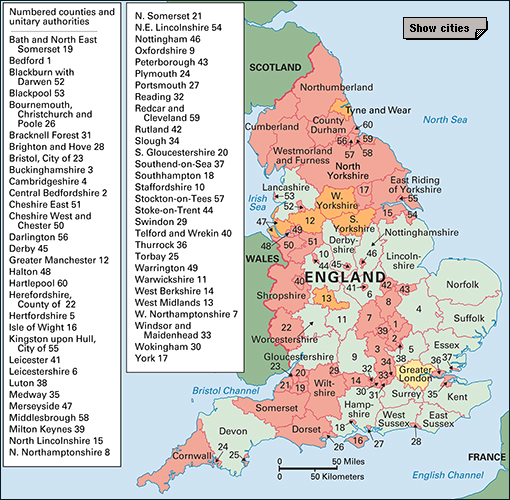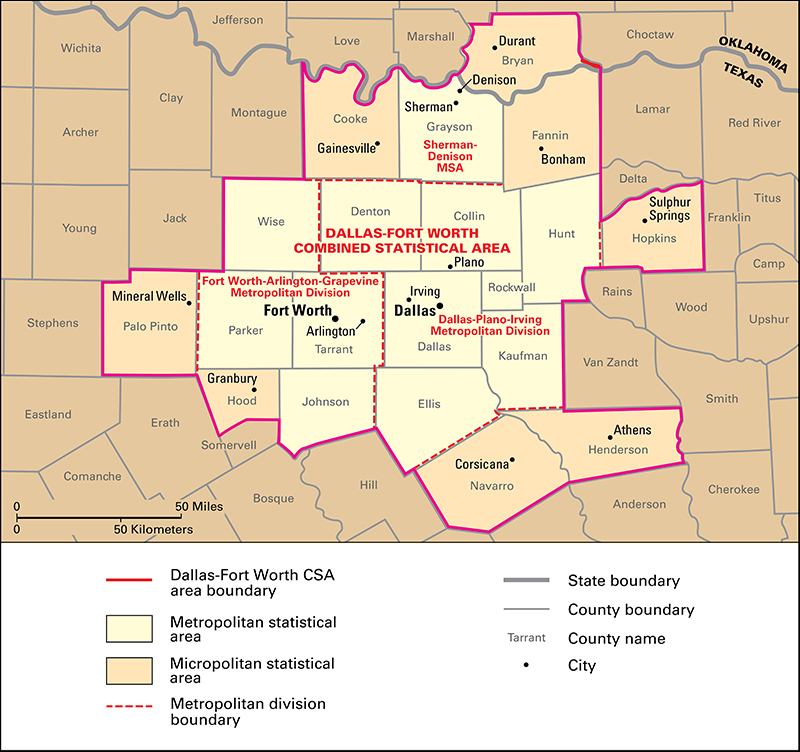County is a division of local government. A number of countries, including the Republic of Ireland and the United Kingdom, have government divisions known as counties. Almost all the states of the United States are divided into counties. This article discusses mainly counties in the United States. For information on counties in other countries, see the Local government section of the articles on various countries, such as Ireland, Government of (Local government); United Kingdom, Government of the (Local government).

Importance.
The county is an important part of local government in all regions of the United States except New England. In New England, the town is the center of local influence (see Town). Connecticut is divided into eight counties used only for the election of sheriffs. Rhode Island has five counties, which serve only as divisions of the state court system and lack functioning governments. In the Midwest and in the Middle Atlantic States, most counties share authority with townships (see Township). Louisiana has divisions called parishes, which correspond to counties. Alaska has similar divisions called boroughs. County revenues are raised chiefly by taxes on personal property and on real estate. State governments contribute some state-collected taxes to counties. State legislatures set county boundaries.
Forms of county governments.
The form of county organization and the number and powers of county officers vary from state to state. Most county governments have a decentralized administration, with no elected executive head. The main county institution is an elective board that usually is called a board of commissioners or board of supervisors. It consists of from 1 to more than 100 members. The members of some boards are elected by voters throughout the county. The members of other boards are elected from specific districts, townships, or wards. Most county officers serve two- to four-year terms. They may include an assessor, clerk of courts, controller or auditor, coroner, county commissioners or supervisors, district attorney, jury commissioner, recorder of deeds, registrar of wills, sheriff, and treasurer. Most county commissions appoint an administrator to oversee staffing and other administrative functions.
Some counties have an executive office that controls all other county offices. The executive office is headed by an elected county executive or by an administrator or manager appointed by the elective board.
Duties.
County governments may administer justice, assess and collect taxes, record official documents, and register voters. They may also administer licensing, public education, roads, and zoning. Some counties manage such functions as sewage disposal, providing aid to the poor, and jails. Some maintain airports, electric service, hospitals, libraries, parks, and water service.
In counties where large cities occupy the entire county area, city and county governments may form a single unit. Denver, Honolulu, and San Francisco, for example, have combined city and county governments. In counties that are only partly covered by a city, the city and county may share or split responsibility for providing services to county residents. In Miami-Dade County, Florida, for example, the city of Miami provides police and fire protection to its own residents. But Miami-Dade County furnishes such protection to many county residents who live outside Miami. Such cities as Baltimore, Maryland, and Roanoke, Virginia, are not part of any county and do not form a part of county government. In these cities, municipal officials perform many of the duties that are ordinarily handled by county officials.

History.
The word county comes from a French word that means domain of a count. The English, influenced by the French, began to refer to their shires as counties. The English colonists brought the county system with them to America.
See also County agricultural extension agent; District attorney; Justice of the peace; Metropolitan area; Sheriff.
